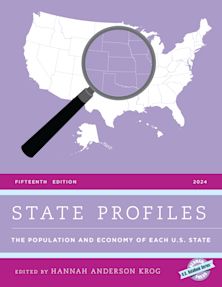- Home
- ACADEMIC
- Geography
- Human Geography
- Housing Recovery after Disasters
Housing Recovery after Disasters
Frances L. Edwards (Anthology Editor) , Miriam Belblidia (Contributor) , N. Emel Ganapati (Contributor) , Jerry V. Graves (Contributor) , Alessandra Jerroleman (Contributor) , John J. Kiefer (Contributor) , Anuradha Mukherji (Contributor) , Christa L. Remington (Contributor) , Jason D. Rivera (Contributor) , Denise D. P. Thompson (Contributor) , Louise K. Comfort (Foreword)
Housing Recovery after Disasters
Frances L. Edwards (Anthology Editor) , Miriam Belblidia (Contributor) , N. Emel Ganapati (Contributor) , Jerry V. Graves (Contributor) , Alessandra Jerroleman (Contributor) , John J. Kiefer (Contributor) , Anuradha Mukherji (Contributor) , Christa L. Remington (Contributor) , Jason D. Rivera (Contributor) , Denise D. P. Thompson (Contributor) , Louise K. Comfort (Foreword)
This product is usually dispatched within 1 week
- Delivery and returns info
-
Free CA delivery on orders $40 or over
You must sign in to add this item to your wishlist. Please sign in or create an account
Description
Recent disasters have demonstrated the critical role that re-housing victims play in communities’ long term disaster recovery. This book examines the history and theories of rehousing, the role of bonding social capital, applies systems theory to understanding the stages of recovery, then presents case studies of long term housing recovery following Hurricane Katrina and Hurricane Sandy in the United States, Hurricane Maria in Dominica, the 2010 earthquake in Haiti, and a variety of disasters in Turkey, Nepal, Japan, and India. Together these chapters address what Dr. Louise Comfort has called “one of the most persistent and difficult policy problems in the field: long term recovery of communities following disaster.”
Table of Contents
Frances L. Edwards
Chapter 2: Pressure Points: A Systems Approach to Long-Term Recovery in South Louisiana
John J. Kiefer, Alessandra Jerroleman, Jerry V. Graves
Chapter 3: Reliance on Government in Times of Disaster: Exploring the Influence of Bonding Social Capital in the United States
Jason D. Rivera
Chapter 4: Long Term Recovery for the Small Business Community
Alessandra Jerroleman, Jerry V. Graves, Miriam Belblidia
Chapter 5: Dominica: The World’s First Resilient Country?
Denise D. P. Thompson
Chapter 6: Cultural Competence in Long Term Recovery: Lessons from the 2010 Haitian Earthquake
Christa L. Remington
Chapter 7: ‘House Keeping’: Managing Post-Disaster Housing Recovery Long Term
N. Emel Ganapati and Anuradha Mukherji
Product details
| Published | Aug 15 2019 |
|---|---|
| Format | Hardback |
| Edition | 1st |
| Extent | 222 |
| ISBN | 9781498592796 |
| Imprint | Lexington Books |
| Illustrations | 1 Graph, 12 Tables |
| Dimensions | 228 x 161 mm |
| Publisher | Bloomsbury Publishing |
About the contributors
Reviews
-
Long Term Recovery, Public Policy, and Housing, edited by Frances Edwards, experienced emergency manager and scholar, and contributions by emerging and senior scholars in the field, addresses one of the core elements of community resilience based on major disasters such as hurricanes and earthquakes. The book provides major challenges and sound housing recovery policies and implementation strategies based on field research of extreme disasters. Housing is addressed as a key measure and priority for long-term community recovery, as a complex policy problem, and needed carefully designed public programs to enable communities to rebuild after disasters for resilience and sustainability.
Naim Kapucu, University of Central Florida
-
Long-Term Recovery and Housing: Public Policy and Household Impacts by Frances L. Edwards is a much needed addition to the literature on disaster recovery and will be a valuable resource in academic and professional libraries. Having taught courses in long-term recovery and development following catastrophic disasters, I’ve found the literature to be very thin regarding the issue of housing and business recovery. In particular, adequate attention is not given to the importance of housing as a social, economic, political, and cultural aspect of community recovery. The chapters in this volume address the legal, financial, and practical concerns that shape the community as it recovers from the loss of housing stock and businesses. The lessons are drawn in a variety of domestic and international contexts.
William L. Waugh Jr., Georgia State University
-
This informative, engaging, concise, and diverse volume explores the successes and failures of post-disaster housing recovery. The authors have conducted field work at their disaster sites, thus adding authenticity, rich description, and first-hand observation. Housing is basic. Few things mobilize community interest more than deciding how to go about rebuilding, replacing, and resuscitating local disaster impacted housing. A paramount indicator of disaster recovery is satisfactory reconstitution of housing in disaster impact zones. Contributors use a variety of social scientific approaches to analyze, critique, and measure resilience, bonding social capital, small business recovery, cultural competence of aid workers, and more.
Richard Sylves, emeritus, University of Delaware
-
One of the biggest casualties following every disaster is the damage to housing in the region. And with such disasters likely to increase, we’ll have to reckon with these consequences ever more frequently. In this lively book, the authors crack open the problem with fresh insights and rich data, in ways certain to bring more of the imaginative ideas we surely need.
Donald F. Kettl, Sid Richardson Professor, LBJ School, University of Texas at Austin



































